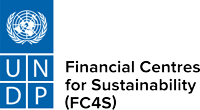In the context of the COVID-19 pandemic, this paper was developed to support thinking on how to respond to the pandemic from a sustainable finance perspective. Specifically, it has two objectives:
- The first is to set out what we know about the ways in which the many different components of our sustainable financial system – market actors, policymakers, regulators, and international institutions – are thinking, planning and reacting to the pandemic, with a focus on implications for sustainable finance markets. As such, it is a work in progress, and will be updated and refined over time as new information and new ideas come to our attention.
- The second objective is to set out a framework for assessing what levers may exist to strengthen the role of the financial system in supporting a low-carbon recovery, and the prospective roles for different communities of actors.
This paper is not intended to be comprehensive across the wide range of sustainability-related implications of the pandemic and is focused on developments within the financial system. For instance, it does not attempt to forecast how macroeconomic trends may impact the trajectory of the low-carbon transition. Rather, this paper is a preparatory effort to inspire thinking by different communities of actors on response strategies over the coming months and help identify where collaboration will be required.










































